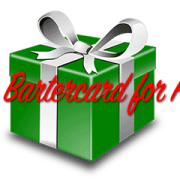A Quick Reminder on Expense Deductibility
Here is a quick summary of what you can claim when running a business, not a hobby. If your intention is to make a profit then the activity is a business and will get caught for tax purposes, but take expert tax advice if in doubt.
Accountancy and Other Business Advisory Services – these are 100% claimable, unless the advice is pre-incorporation when those costs would have to be capitalised as incorporation costs. These are called ‘Preliminary Costs” and are recorded as a Fixed Asset and GST can be claimed.
Bank Fees – all fees to operate a bank or credit card account are deductible, but no GST can be claimed on these expenses. Please note MSF (Merchant Service Fee) rebates do not attract GST and can be classified as a refund of Bank Fees or Credit Card Charges.
Books, e-Books, dvds – so long as they were purchased for the purpose of helping you to run your business more successfully they are deductible. Even movie theatre tickets could be claimable if you are an actor or writer, or if given as a form of promotion then they can be classified as Advertising.
Depreciation – This expense that sometimes washes over the heads of some tax payers because of its treatment for tax purposes. Most can understand the logic that when an expense is paid for then it is claimed against income earned. But when depreciation is involved that rule does not apply because rules have been prescribed that state ‘an expense greater than $575’ (GST Included, $500 excluded) for a new single asset is incurred, that cost must be spread over a number of income tax years. This spreading of the cost is called “Depreciation”. In the case where the asset is used only partially for the business then only that proportion can be claimed. A simple test for this type of expenses is to ask when an asset is over $575 “Will the item still be in use at the end of this financial year?” If so then it must be depreciated, but if purchased during the year, only the number of months in use can be claimed. To find out more about the allowable rates of depreciation you can go to https://interact1.ird.govt.nz/forms/depnrates/ .
Important– If you have a large number of assets and you would like to control them better and calculate your own depreciation we can provide an online asset program.
Entertainment – Only 50 percent is deductible if the expense is incurred within your local area of residency. If away on business the same cost could be 100% deductible. If the food is consumed on your premises then 100% is claimable.
Equipment Hire – If you need to hire equipment for your business then these costs are deductible and coded to Leasing charges.
Insurance – All insurances related to running your business including partially used private assets where used by the business (proportionately) are deductible including contents, dwelling, vehicle, professional indemnity, and public liability types of insurance. With the cost of insurance escalating some clients are reducing their premiums by either increasing their excesses or self-insuring part of the risk.
Interest Paid – If you need to borrow money to finance your business the interest portion of the repayments is deductible for tax purposes.
Legal Fees – If the cost relates to business advice or re-arranging finance, debt collection then these costs are deductible. However legal costs for the purchase of a new property or asset or personal advice are not deductible.
If you do incur legal costs for new Asset purchases then seek proper advice.
Motor Vehicles – You can claim GST back when buying a new or second hand vehicle in the proportion to which it is being used by your business. Keep a log book for three months every three years to establish your business use %. Once this calculation has been done, then the Percentage can be applied to all types of vehicle running expenses, including depreciation. As an alternative a claim can be made on an actual kilometres used for business basis, in which case no expenses for vehicles would be claimed.
Repairs and Maintenance – Any costs incurred in keeping plant, equipment and at your workspace in good repair can be claimed on a proportional basis. Care needs to be exercised when it involves general improvement to your home if you work there, so make sure you consult your accountant to stay on the right side of tax legislation.
Printing and Stationery – This covers such item as printing inks, print paper, photocopy costs and other incidentals necessary to keep your office running.
Seminars and Training – All professional development costs are deductible, however obtaining an initial degree is a personal cost and not deductible.
Subscriptions – Payment for business association and professional membership costs are deductible, including newspapers and magazine costs.
Travel and Associated Costs – These costs are deductible so long as they are incurred for business purposes. If you combine going to a conference or visiting clients with a holiday you will need to apportion costs accordingly. Also take care that if the travel is overseas that no GST is claimed.
In Summary, if you require assistance to setup any of the allocation splits once you have ascertained your position please contact us so we can get these setup properly.
OTHER
Finally FINES – These are not deductible for tax purposes.
Mixed Income Sources – In today’s environment we are finding some clients working for wages as well as running a business. This could be when someone is starting a business or they have experienced a downturn and need to supplement their business income. In these instances the taxpayer must apportion the expenses between waged income and self-employed. For example, if your self-employment only takes up say 2 days per week then you cannot claim 100% of your vehicle expenses.



Leave a Reply
Want to join the discussion?Feel free to contribute!